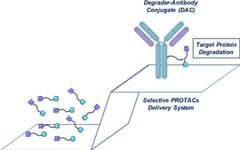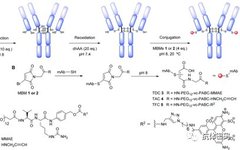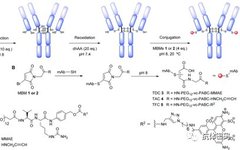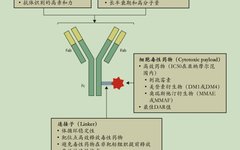Degrader-Antibody Conjugates: Risks on the Path from Concept to Reality
01 DAC‘s Emergence and Advantages Cancer therapeutics need to balance efficacy and safety, even targeted chemotherapy does not always only kill abnormal cancer cells, and non-specific toxicity can lead to a low therapeutic index and side effects. The technology of Proteolysis-targeting chimeras (PROTACs), which achieve therapeutic effects by promoting the degradation of target proteins, is … Read more



